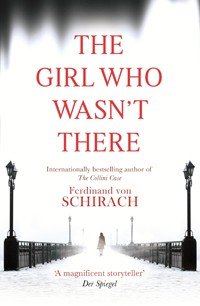
Translated by Anthea Bell — It seems you just can’t avoid books with ‘girl’ in their title, but there’s barely a girl to be seen in this elegant story of art, perversion and courtroom drama. In fact, the original German title was Taboo, which is at once more enigmatic and all-encompassing.
This short, melancholic novel focuses on Sebastian von Eschburg, last in line of a family of impoverished Bavarian nobility. The first half of the book is taken up with the description of Sebastian’s childhood and his journey to achieving fame and financial success as a photographer and installation artist. He is a lonely boy: his parents are distant and self-absorbed, he gets shipped off to a Jesuit boarding-school at an early age and he seems to suffer (or perhaps benefit) from synaesthesia, a condition in which two unrelated senses merge. In Sebastian’s case, he sees the letters of the alphabet, dates, memories and places all linked to specific colours. He is initially ashamed of it and retreats into his own little world of reading, imaginary friends and, finally, photography. A budding relationship with the publicist Sofia inspires an exciting new artistic venture, but then he starts to doubt everything he ever believed.
In the second half of the book, there is a sudden shift in tone and perspective. Some may find it jarring, while others will be relieved that it’s finally moving into more traditional crime fiction territory. Sebastian is accused of murdering a young woman – although the body has not been found – and so the story finally becomes a case for prosecutor Monika Landau and the world-weary defence lawyer Konrad Biegler.
The author Von Schirach is well-known for his career as a criminal lawyer and this informs the legal wrangles that follow. But don’t expect a ratcheting up of suspense, the parry and riposte of traditional courtroom dramas. Instead, we are led through trapdoors, fake scenery, and strange conversations with multiple meanings. Biegler himself seems to have some deep existential fears and is not convinced of his client’s innocence.
It’s a book that will baffle fans of traditional crime fiction. The spare prose of the first half is beautiful, but the smoke and mirrors of the second is frustrating. Yet The Girl Who Wasn’t There is a book that asks important questions about the criminal justice system, about trial by media, about police propensity to force confessions when they have little other evidence. It’s also a book that asks deeper philosophical questions about the distinction between reality and truth, between beauty and truth, individual and collective guilt.
Ferdinand von Schirach specialises in books which make us uncomfortable, written in a lean yet very effective style. He uses the crime genre to provoke a debate, rather than to entertain. The Girl Who Wasn’t There has less historical significance than the author’s previous novel, The Collini Case, so will probably not gain as wide a readership. However, this, to my mind, is a far better written novel.
Little, Brown
Print/Kindle/iBook
£6.49
CFL Rating: 4 Stars









